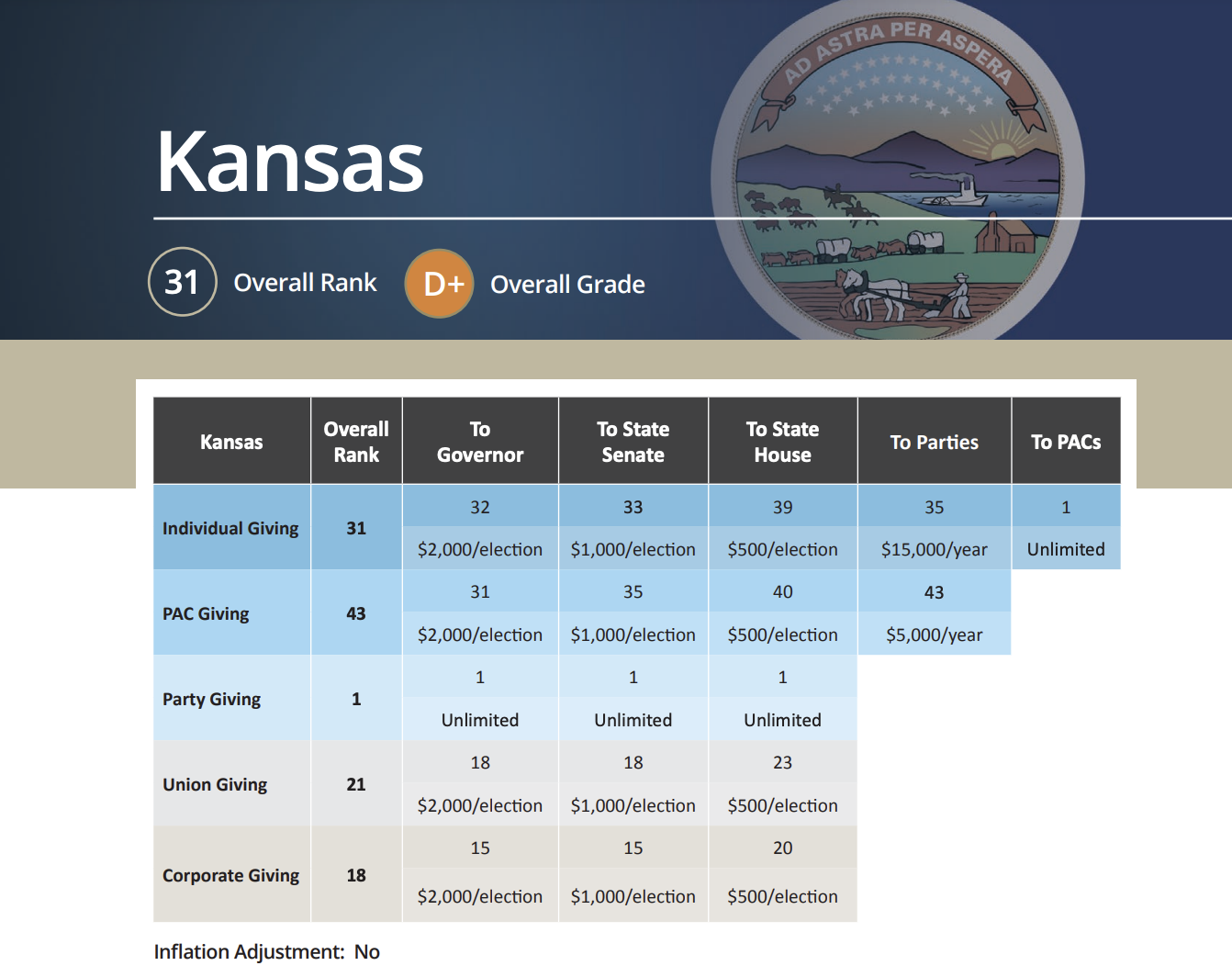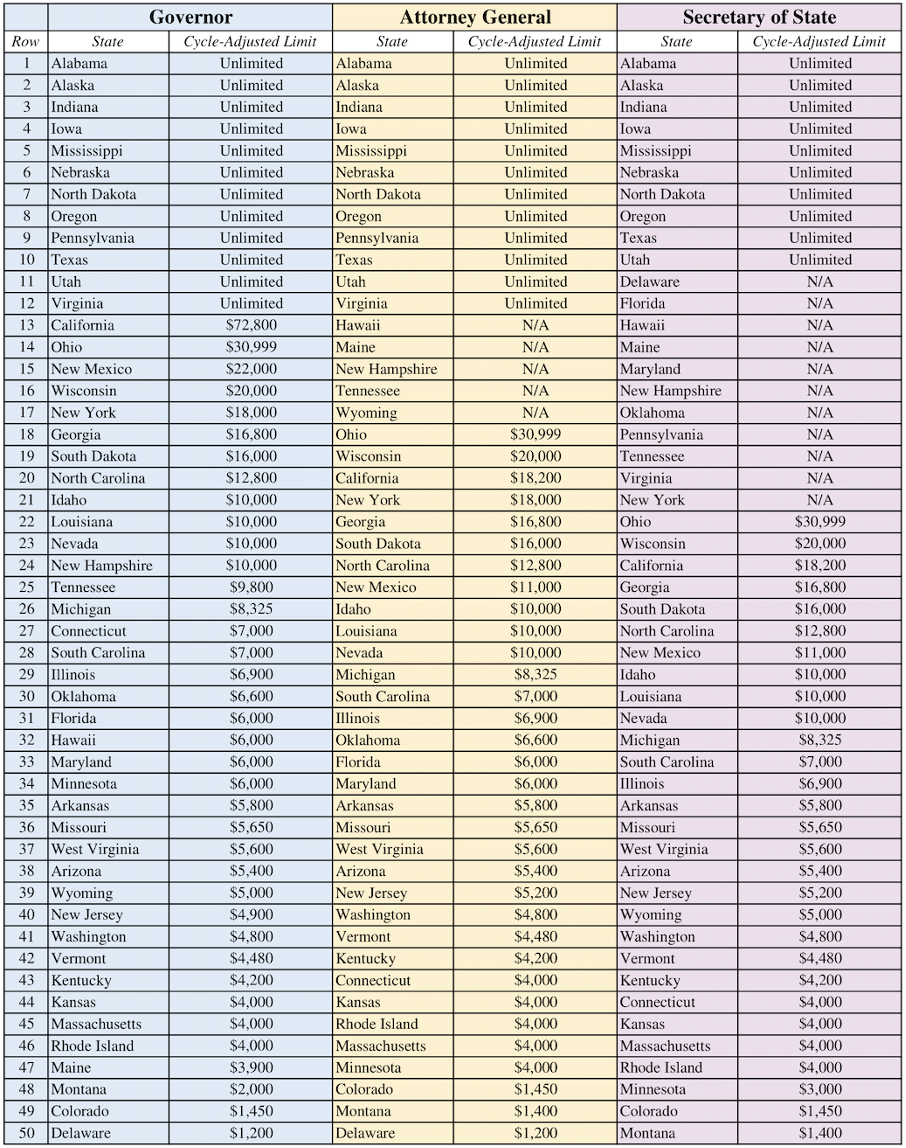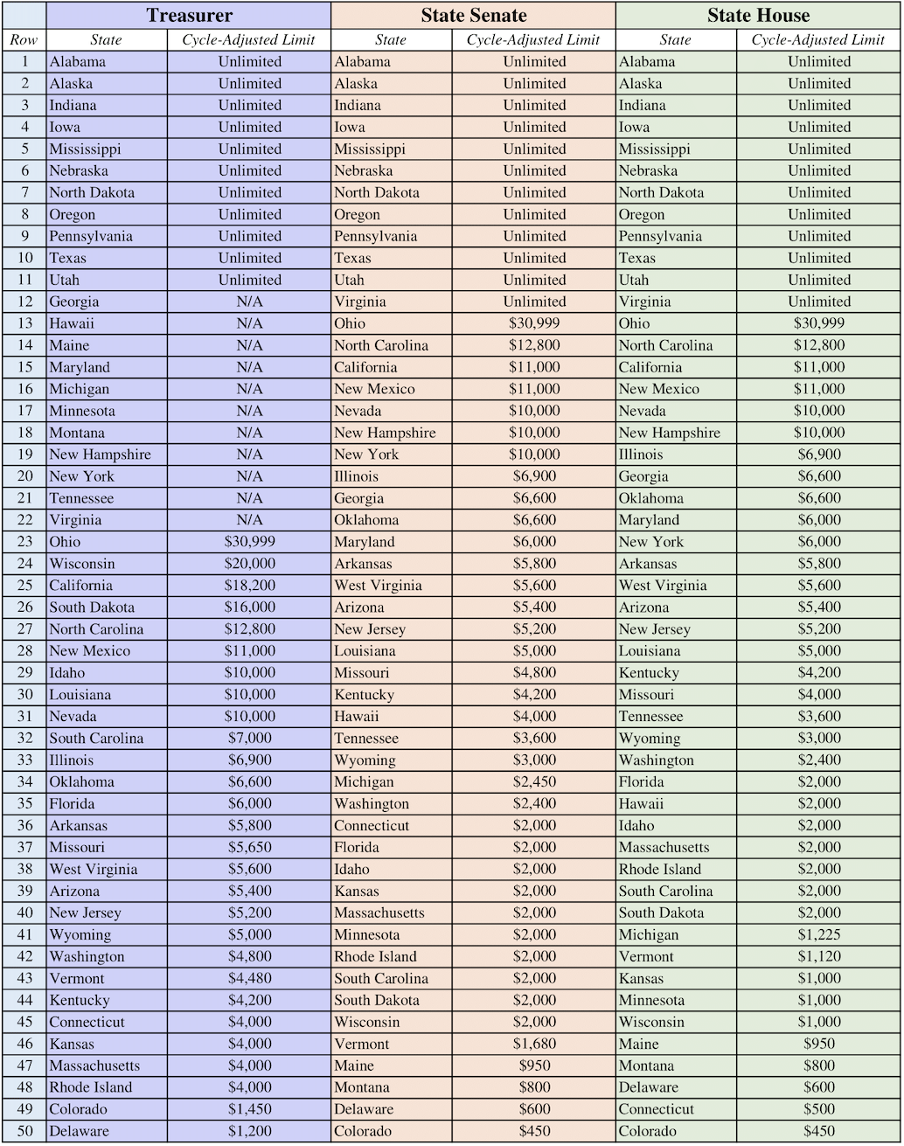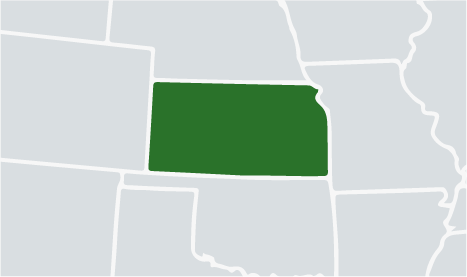On January 30, 2025, Institute for Free Speech President David Keating gave testimony before the Kansas House of Representatives Committee on Elections on House Bill 2054. The bill, if passed into law, would improve free speech, provide more information to voters, and reduce complexity in the campaign finance laws.
Read a PDF of the full testimony here.
Watch the full presentation below:
Statement of David Keating
President, Institute for Free Speech
Before the Committee on Elections
Kansas House of Representatives
January 30, 2025
Chairman Proctor, Ranking Member Haskins, and members of the Committee, on behalf of the Institute for Free Speech, thank you for inviting me to testify at this hearing on House Bill 2054.
The fundamental right to engage in political speech lies at the heart of our democracy. Through campaign donations and public discourse about candidates and policies, citizens exercise their essential First Amendment right to shape how they are governed. This core freedom—the ability to participate in political discussion and support—should face minimal restrictions, with the government consistently favoring liberty over constraint. That principle guides the important reforms proposed in this bill, which aims to enhance Kansans’ free speech rights through targeted updates to the state’s campaign finance laws.
In short, the current proposal would:
- Repeal contribution limits to parties.
- Double contribution limits to candidates.
If passed into law, the measure would improve free speech, provide more information to voters, and reduce complexity in the campaign finance laws.
Political Parties Are Critical to Our Political System
Political parties play an essential role in our political system. They help people come together and work for common goals. But they are at an enormous disadvantage in Kansas.
For example, independent expenditure-only committees (Super PACs) can raise and spend unlimited amounts of money. At the same time, state and local party organizations are subject to strict limits on how much they can raise. While interest groups are generally good for society and self-government, many focus only on one issue or a narrow range of issues. Historically, political parties have been meliorating institutions that balance various views and interests in broad coalitions. Treating political parties as inferior to other groups and organizations in society makes politics more atomized, more focused on individual candidates, and less of a team sport.
If the measure becomes law, Kansas will finally join the majority of states nationally that do not limit individual contributions to political parties.
Contribution Limits
One of the most important avenues through which citizens can voice their political preferences—contributing to candidates and causes— is restricted in many ways in Kansas. The right to contribute to candidates, parties, and political groups allows citizens to effectively join with others to amplify their voices and advocate for change.
Many people mistakenly believe that most states limit all types of campaign contributions. In fact, states have not limited contributions for most of our nation’s history. Even today, most states permit citizens to donate any amount in at least one of the categories we studied in my organization’s comprehensive 2018 study, titled “Grading the 50 States on Political Giving Freedom.”
Kansas scored poorly in our 2018 scorecard on contribution limits, ranking 31st overall. The state is well below average on contribution limits to political parties—indeed, as of the date studied in the report, 28 states allowed unlimited individual contributions to political parties.

Since we published that study in 2018, several states have raised their contribution limits through legislative action, automatic indexing for inflation, or both.
Consider the current dollar amounts of all state contribution limits (see the attached tables). Kansas has some of the most restrictive contribution limits in the nation for numerous offices. Today, only five states have a lower limit for Senate, just five have a lower limit for the House of Representatives, and a mere four have a lower limit for governor.
Even if the bill becomes law, Kansas would rank 27th in candidate contribution limits for governor, tied for 31st with another state for Senate, and tied for 34th with seven other states for House.
The last time Kansas adjusted candidate contribution limits for the governor or state legislative races was in 1990, when the contribution limit for state senate races was delinked from house races and increased to $1,000. If the Legislature adjusted the 1990 contribution limits to inflation since then, the per election candidate contribution limits would be $4,850 for governor, $2,450 for Senate, and $1,200 for House (rounded to the nearest $50). All of these amounts are significantly higher than those in HB 2054.
Contribution limits tend to lead to complexity as states seek to avoid “loopholes” in the limits. On the other hand, states without contribution limits have less need for complex rules on coordination or giving through intermediaries.
The right to speak out about politics is a core First Amendment right, and limits on one’s political donations infringe on that right. The Supreme Court has repeatedly ruled that campaign spending limits are unconstitutional. Despite explicitly recognizing that contribution limits infringe on First Amendment rights, see Buckley, 424 U.S. at 22, the Court has nonetheless upheld carefully crafted limits on contributions to candidates, political parties, and PACs. But that doesn’t mean such limits are good policy. And the Court ruled in 2006 that even candidate and party contribution limits can be unconstitutionally low, as when it struck down limits in Vermont in 2006 and Alaska in 2019.[1]
While limits on contributions impede political engagement and discourage some donors from participating altogether—a bad thing, we believe—other individuals merely look for different ways to express their political opinions and preferences.
Candidate and Party Contribution Limits Increase the Influence of Super PACs
Contribution limits incentivize politically active individuals to contribute to independent groups, such as Super PACs, that can fundraise and spend without such limits. As the Supreme Court has found it unconstitutional to limit contributions to and expenditures from independent groups, contribution limits place candidates and political parties at a permanent political disadvantage compared to Super PACs.
We are living with the practical consequences of these regulatory incentives. Traditional political actors, such as candidates and parties, often can’t speak as much as Super PACs. Some candidates have tried to harness the potential of independent expenditures by outsourcing advertising and other operations to friendly Super PACs. However, this has proven difficult in practice, given the illegality of direct coordination between the two entities. And even if it did work, that would undermine the transparency goals of those who support contribution limits.
Those favoring contribution limits should ask themselves who they prefer to be the main actors in political discourse: candidates, parties, or Super PACs. The instinct to contain all of them is not a viable option.
Adjust All Monetary Amounts for Inflation
A dollar today is worth less than a dollar in the past. Yet Kansas campaign finance law sets contribution limits and other monetary thresholds in fixed dollar amounts, which are not regularly updated. These thresholds run the gamut, from how much spending triggers reporting requirements to how large a contribution must be to require reporting of a contributor’s personal information. Because of this system, regulations lower contribution limits and unnecessarily capture ever smaller groups, more private information, and more speech over time. Adjusting these thresholds for inflation is a simple and uncontroversial way for states to acknowledge that the government need not regulate small speakers and contributors. It would also ensure that inflation won’t erode the value of contribution limits over time.
Including the 12 states with no limits on individual contributions, the right to make campaign contributions is not eroded by inflation in 29 of the 50 states. Kansas should consider joining these 29 states.
Political Party Primary Contribution Limits Are Likely Unconstitutional
The current law strictly limits the contributions a political party may give to a candidate of its party in the primary. The law, as written, makes little sense and is likely unconstitutional.
First, it makes an exception for “a national party committee.” Such a committee apparently can contribute without any limitation, but a state party committee would be limited to $4,000 in a statewide race.
Second, it would appear that a party other than one of “the same political party” could contribute without limit. For example, the state Republican Party could donate without limit to a Democratic candidate running in a Democratic Party primary and vice versa. While this is unlikely to happen, it appears permissible.
It is difficult to think of a state interest, much less a compelling state interest, in limiting party contributions in a political party primary, except for national party contributions or contributions by another political party.
The Supreme Court’s 1989 ruling in Eu v. San Francisco County Democratic Central Committee is instructive. There, the Court ruled that California’s law banning party primary endorsements was unconstitutional. While Kansas allows party primary endorsements, the law limiting party primary contributions runs afoul of the principles in Eu. The Court ruled that “A highly paternalistic approach limiting what people may hear is generally suspect, but it is particularly egregious where the State censors the political speech a political party shares with its members….Freedom of association means not only that an individual voter has the right to associate with the political party of her choice, but also that a political party has a right to identify the people who constitute the association, and to select a standard bearer who best represents the party’s ideologies and preferences.”
California argued that the State had a compelling interest in “party stability.” However, the Court rejected that claim, ruling that “preserving party unity during a primary is not a compelling state interest.” Later in the ruling, the Court also noted that “the State has no interest in protect[ing] the integrity of the Party against the Party itself.”
The Supreme “Court has recognized only one permissible ground for restricting political speech—the prevention of ‘quid pro quo’ corruption or its appearance”—and “consistently rejected attempts to restrict campaign speech based on other legislative aims.” Cruz, 142 S.Ct. at 1652 (quoting McCutcheon v. Federal Election Commission, 572 U.S. 185, 207 (2014) (plurality opinion)). The current law does not appear to have any meaningful impact on “the prevention of quid pro quo corruption or its appearance.”
Conclusion
When discussing political speech, it’s important to remember that we are dealing with the essence of living in a free society—the ability to discuss candidates and ideas for how we want to be governed. When in doubt, government should always err on the side of freedom. The proposed changes in the bill make modest changes to state campaign finance law to help achieve that goal and enhance free speech rights in Kansas.
Summary of State Contribution Limits


Cycle-Adjusted Methodology
- For states with per-election cycle limits, the limit was taken
- For states with per election limit, the limit was doubled to account for the primary and the general (run-off elections were not included)
- For states with yearly limits, the limit was adjusted for the length of the term of office (i.e. a yearly limit for a four-year gubernatorial office was quadrupled, a yearly limit for a 2-year state representative was doubled)
[1] Randall v. Sorrell, 548 U.S. 230 (2006); Thompson v. Hebdon, 140 S.Ct. 348 (2019); see also Thompson v. Hebdon, 7 F. 4th 348 (9th Cir. 2021)














